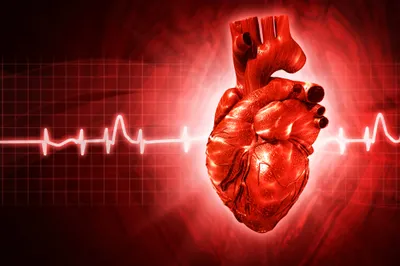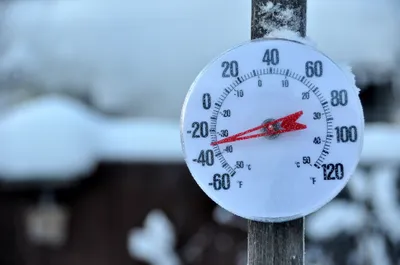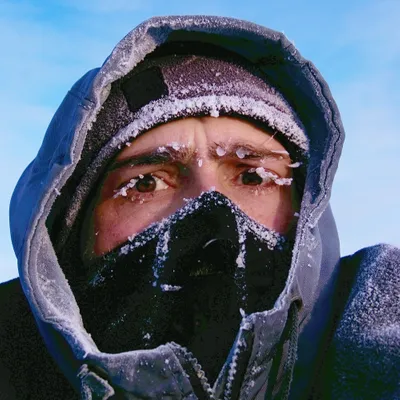‘Tis the season for freezing your butt off, and in some cases in can be a lot worse than getting the shivers. Hypothermia is basically the deficit of your body’s heat production and the rate of heat it’s producing—if it can’t keep up, you’ve got a problem.
Hypothermia is often associated with falling in cold water, but it can happen in any cold conditions when you haven’t properly layered up. Even a seemingly small drop in your core temperature can lead to a life-threatening situation. Here are seven facts to know about hypothermia…
1. Hypothermia Has Telltale Symptoms
Aside from shivering in an attempt to raise your body temperature, you may also experience symptoms go well beyond that. Hypothermia can affect your motor functions as well as your ability to speak properly, according to the Mayo Clinic.
You may also feel sick, tired, hungry, and dizzy—or a combination of those (although perhaps not sick and hungry at the same time). Your heart rate can increase. “Someone with hypothermia usually isn’t aware of his or her condition because the symptoms often begin gradually,” notes the source.
2. You Can Get it Indoors
When you think of hypothermia, you might picture someone in a parka falling face first into a snowbank, or someone shivering beside a pond after narrowly escaping after breaking through the ice. Those are both possible scenarios, but it doesn’t have to be that dramatic or extreme.
The Mayo Clinic also explains that hypothermia can actually occur when you’d think you’re safe—indoors. “An older person may develop mild hypothermia after prolonged exposure to indoor temperatures that would generally be fine for a younger or healthier adult,” notes the clinic. So if your Great Aunt Mauve is complaining of being chilly during her unexpected visit, it might be best to crank up the furnace a few degrees to prevent any problems.
3. There are Only a Few Degrees of Separation
The difference between feeling fine and having hypothermia is literally only a few degrees, according to a site called TenRandomFacts.com. The condition can set in when your normal body temperature (around 98.6-F for most people) falls below 95-F.
As far as outside temperature goes, you’re at risk of hypothermia if the thermometer falls below 50-Fahrenheit—this temperature applies to air as well as water, notes the source. Don’t try to show how tough you are by wearing a T-shirt when it’s cold out—you may end up in hospital as a result.
4. Dehydration and Hypothermia are Partners in Crime
If you’re trekking out into the frosty wilderness, it’s best to bring a good supply of water with you. This is because a lack of water can complicate your health, leaving you more vulnerable to freezing to death, confirms JustAnswer.com.
This is because water holds its warmth more “than almost any other substance,” and having sufficient fluid in your body can help regulate your core temperature, notes the source. It’s also about your volume of blood related to your liquid intake. “If your blood volume is up to normal, your body can circulate enough fluid to your muscles and viscera (internal organs) to keep you functioning,” it adds.
5. Number of Hypothermia Deaths on the Rise
HealthDay notes in a 2015 article that the number of fatalities from freezing were on the rise in the U.S., and the groups most at risk are seniors, the mentally ill, people living alone, homeless, and those addicted to drugs.
The article cites data from the Centers for Disease Control and Prevention (CDC), which states that more than 13,400-people perished from cold weather between 2003 and 2013. “A statistically significant increase in death rates from hypothermia occurred over the decade,” notes the article. There are particular concerns when there’s a “cold snap”, which is multiple days in a row of freezing conditions.
6. Don’t Freeze Up When you Notice Symptoms
If you suspect someone has hypothermia from prolonged exposure to the cold (based on some of the symptoms we’ve already covered), then call 911, suggests the Mayo Clinic. Time may be of the essence here, as hypothermia can kill relatively quickly.
While you’re waiting for medical personnel to respond, if possible you should relocate the person to a sheltered indoor area, “moving them carefully and slowly,” stresses the clinic. Sudden jarring movements can cause an irregular heartbeat, it adds. Remove any wet clothing and wrap them in warm blankets (or your own dry clothing as a last resort).
7. Alcohol Does Not Prevent Hypothermia
There seems to be a misconception out there that alcohol warms your body and lowers your freezing point, and therefore makes you less vulnerable to freezing to death. This is not true—in fact, the truth is quite the opposite, according to TodayIFoundOut.com.
The source notes that alcohol actually lowers your core temperature, which you may not notice because you feel warm and fuzzy from the booze. Even one drink can trigger a drop in body temperature, it notes. Alcohol can cause blood vessels under your skin to dilate, bringing more blood to the surface, giving you this false sensation of warmth. Add impairment from alcohol and lowered judgment, and the winter can suddenly get a whole lot more dangerous!










